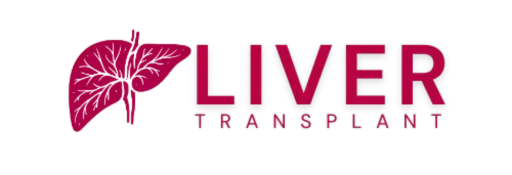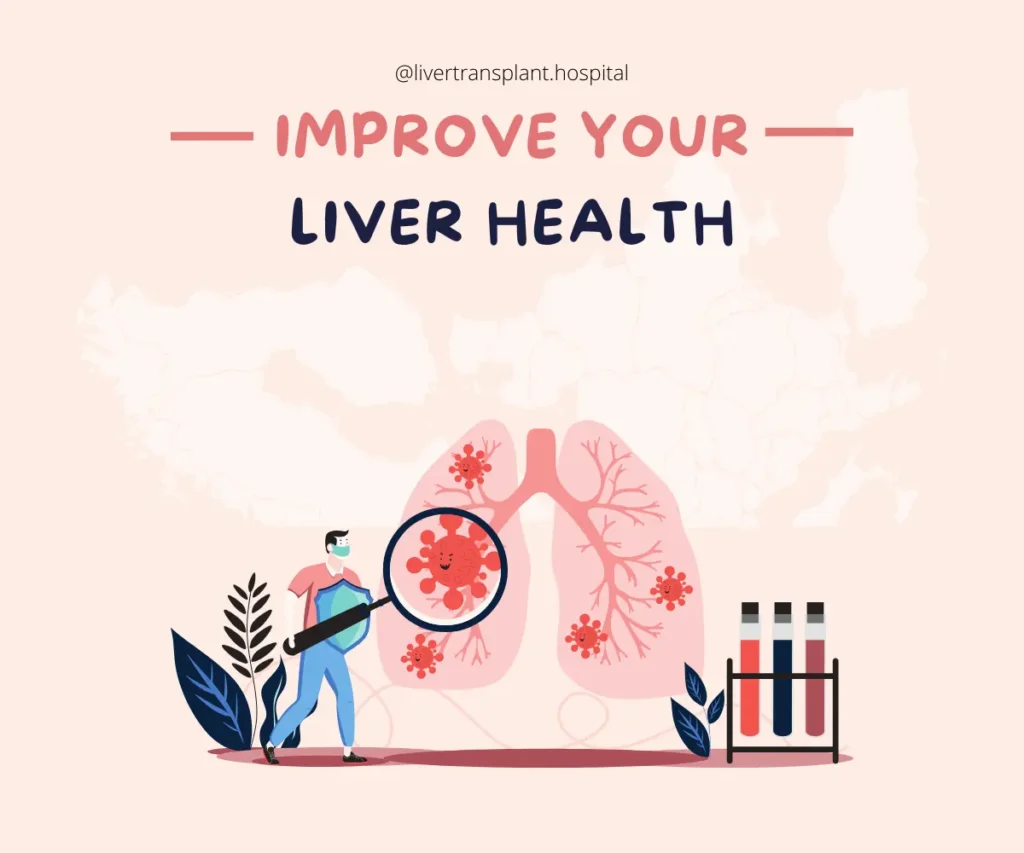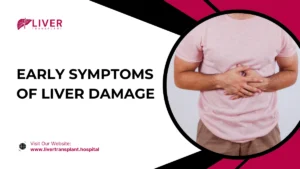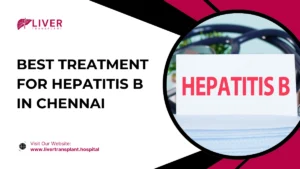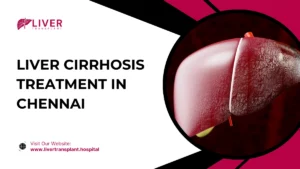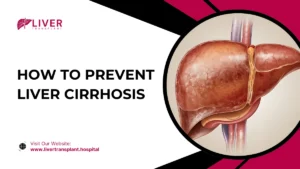Best diet for liver disease focuses on foods that support liver health and help reduce inflammation. It includes plenty of fruits, vegetables, whole grains, lean proteins, and healthy fats while limiting alcohol, processed foods, and excessive sugar intake.
What Are the Best Foods to Eat for Your Liver?
The best diet for liver disease includes nutrient-rich foods that support liver health and detoxification.
- Leafy Greens
- Spinach, kale, and arugula are some of the best leafy greens for liver health. These greens are loaded with antioxidants that protect the liver from damage caused by free radicals. They are also rich in chlorophyll, which helps detoxify the liver by removing harmful toxins and heavy metals from the bloodstream. Adding a salad or a green smoothie to your daily diet can make a significant difference.
- Cruciferous Vegetables
- Broccoli, Brussels sprouts, cauliflower, and cabbage fall into this category. These vegetables are known for their ability to boost the liver’s natural detoxification enzymes. They help the liver eliminate toxins and reduce the risk of liver-related illnesses. Regularly steaming or stir-frying these veggies with minimal oil can be a great way to include them in your meals.
- Fruits
- Fruits like berries, oranges, apples, and grapes are excellent for the liver. Berries such as blueberries and cranberries contain antioxidants and phytonutrients that reduce liver inflammation and promote repair. Citrus fruits like oranges and lemons are high in vitamin C, which supports detoxification. Apples are rich in fiber and pectin, aiding in flushing out toxins from the digestive system, thereby reducing the liver’s workload.
- Healthy Fats
- Healthy fats from nuts, seeds, and avocados provide essential fatty acids that support liver function without causing fat buildup. Almonds, walnuts, and chia seeds are particularly beneficial because they contain omega-3 fatty acids and vitamin E, both of which reduce liver inflammation. Avocados also contain compounds that encourage the body to produce glutathione, a powerful antioxidant that helps cleanse the liver.
- Whole Grains
- Whole grains like brown rice, oats, and quinoa are rich in complex carbohydrates and dietary fiber, which support healthy metabolism and energy levels. They also help regulate blood sugar levels, reducing the risk of fatty liver disease. Switching from refined grains to whole grains in your meals can ease the liver’s burden and enhance overall liver function.

What Makes Food Good for Your Liver?
Rich in Antioxidants:
Antioxidants are compounds that fight oxidative stress, a process that damages liver cells and contributes to inflammation. Foods like berries, green tea, and leafy greens are high in antioxidants, which neutralize free radicals and support the liver’s natural healing processes. Incorporating these foods into the best diet for liver disease can help your liver stay healthy and resilient.
Low in Saturated Fats:
Foods high in saturated fats, such as fried items and processed meats, can lead to fat buildup in the liver, contributing to conditions like fatty liver disease. Instead, opt for healthy fat sources like nuts, seeds, and olive oil, which provide essential nutrients without overloading the liver. These are key components of the best diet for liver disease.
Nutrient-Dense:
Nutrient-dense foods contain a high concentration of vitamins, minerals, and other essential nutrients in relation to their calorie content. These nutrients are crucial for liver repair and regeneration. For example, vitamin E found in nuts and seeds acts as an antioxidant, while vitamin C in citrus fruits aids in detoxification. These foods are essential in the best diet for liver disease.
Easy to Digest:
Foods that are easy on the digestive system reduce the workload on your liver. For example, simple soups, steamed vegetables, and smoothies provide essential nutrients without taxing the liver. Avoid heavy, greasy, or overly processed foods that make digestion more difficult. Incorporating easy-to-digest foods is an important aspect of the best diet for liver disease.
Additional Tips:
- Drink Green Tea: This beverage is rich in catechins, a type of antioxidant that reduces liver inflammation and promotes detoxification. Consuming 2-3 cups daily as part of the best diet for liver disease can have a protective effect on the liver.
- Add Turmeric to Your Meals: Turmeric contains curcumin, a powerful anti-inflammatory compound that supports liver function and helps in detoxification. Adding a pinch of turmeric to your meals or drinking turmeric tea can enhance liver health, making it a valuable addition to the best diet for liver disease.
What Else Can You Do to Keep Your Liver Healthy?
- Stay Hydrated
- Drinking enough water is essential for maintaining optimal liver function. Water helps the liver flush out toxins and metabolic waste products, ensuring that it operates efficiently. Aim for at least 8-10 glasses of water per day. You can also include hydrating foods like watermelon and cucumber in your diet to supplement your fluid intake.
- Exercise Regularly
- Physical activity plays a vital role in maintaining liver health. Exercise helps reduce fat buildup in the liver, improving overall liver function and reducing the risk of fatty liver disease. Activities such as walking, jogging, swimming, or yoga for at least 30 minutes a day can contribute significantly to liver health.
- Avoid Alcohol
- Alcohol is one of the leading causes of liver damage. It puts a significant strain on the liver as it tries to process the alcohol and eliminate its toxic byproducts. Reducing or completely avoiding alcohol can prevent further liver damage and support its natural healing processes.
- Medicine for Liver Disease
- Always consult a healthcare provider before taking any medication, as some drugs can harm the liver. Stick to prescribed medicines and avoid self-medication. If you are dealing with liver disease, discuss the best medicines and supplements for your condition with your doctor to ensure they are safe for your liver.
What Foods Protect the Liver?
- Garlic
- Garlic is a natural powerhouse for liver health. It contains sulfur compounds that activate liver enzymes responsible for flushing out toxins. Garlic is also rich in selenium, a mineral that enhances antioxidant action and further supports liver protection. Adding a clove of garlic to your meals daily can promote detoxification and strengthen liver function.
- Green Tea
- Green tea is loaded with antioxidants, particularly catechins, which reduce liver inflammation and oxidative stress. It also supports the liver’s natural detoxification processes and may lower the risk of liver fat accumulation. Drinking 2-3 cups of green tea daily can provide significant benefits for your liver.
- Fatty Fish
- Fatty fish like salmon, mackerel, and sardines are excellent sources of omega-3 fatty acids. These healthy fats reduce inflammation in the liver and decrease fat buildup, which is especially beneficial for those with non-alcoholic fatty liver disease. Including fatty fish in your diet twice a week can enhance liver health.
- Olive Oil
- Olive oil is one of the healthiest fats you can consume for your liver. It has been shown to improve liver enzyme levels and reduce fat accumulation. A small daily dose of olive oil, such as a tablespoon drizzled over salads or used in cooking, can support liver function and overall health.
What Foods Should You Avoid With Liver Cancer?
- Processed Foods
- Processed foods are laden with preservatives, unhealthy fats, and excessive amounts of salt and sugar. These substances not only burden the liver but can also accelerate liver damage, especially in individuals with liver cancer. Examples include packaged snacks, canned foods, and fast food. Eliminating or minimizing these foods can help reduce the liver’s workload and improve overall health.
- Sugary Drinks
- Beverages like soda, energy drinks, and sweetened juices are high in fructose, which can overload the liver and contribute to fat buildup. For individuals with liver cancer, sugary drinks can exacerbate inflammation and impair liver function. Opting for water, herbal teas, or natural fruit-infused water is a healthier choice.
- Fried Foods
- Fried foods are rich in saturated fats and trans fats, which strain the liver and contribute to fat accumulation. These fats can worsen liver inflammation and impair recovery in liver cancer patients. Choosing baked, steamed, or grilled alternatives can significantly reduce the intake of unhealthy fats.
- Alcohol
- Alcohol is a major toxin for the liver, and for those with liver cancer, it can further damage already compromised liver cells. Even small amounts of alcohol can have detrimental effects. Complete abstinence is recommended to allow the liver to focus on recovery and reduce additional strain.
What Is the Best Way to Fight Liver Cancer?
- Adopt a Nutrient-Rich Diet: A diet tailored to liver cancer should prioritize lean proteins, fresh fruits, and vegetables, which are all part of the best diet for liver disease. Lean proteins, like chicken, fish, and legumes, support tissue repair and immune function. Fruits and vegetables provide essential vitamins, minerals, and antioxidants that reduce inflammation and promote overall health. Avoid overly processed or sugary foods that can strain the liver further.
- Consult a Specialist: Liver cancer treatment often requires a team of specialists, including oncologists, dietitians, and hepatologists. Regular check-ups and tailored treatment plans, including medications, therapies, or surgical interventions, are vital. Medicine for liver disease plays a crucial role in managing liver health and symptoms. Working closely with healthcare providers ensures the most effective approach to managing liver cancer and preserving liver function.
- Take Recommended Supplements: Supplements can play a supportive role in liver cancer management. Vitamins such as vitamin D and E, along with minerals like selenium, are known to boost immunity and protect liver cells. However, supplements should only be taken under the guidance of a doctor to ensure they complement your treatment plan and avoid potential interactions with other medications.
- Best Antihistamine for Liver Disease: Antihistamines can help manage allergies and symptoms related to liver disease, such as itching. However, not all antihistamines are suitable for individuals with liver disease. Using antihistamines must be done cautiously and only under medical supervision to avoid additional liver strain.
Conclusion
Managing your liver health starts with choosing the best diet for liver disease. By including nutrient-rich foods and avoiding harmful substances, you can protect and heal your liver. Remember, simple lifestyle changes like staying hydrated and exercising can significantly enhance your liver’s health. For more personalized advice on the best diet for liver disease, contact us today and take the first step toward better health.
